We here at Notinhalloffame.com thought it would be fun to take a look at the major awards in North American team sports and see how it translates into Hall of Fame potential.
Needless to say, different awards in different sports yield hall of fame potential. In basketball, the team sport with the least number of players on a roster, the dividend for greatness much higher. In baseball, it is not as much as a great individual season does not have the same impact.
Last time, we looked at the Art Ross Trophy. This time we went back to basketball, and the NBA Finals MVP.
The award was first given out in 1969, and basketball is the most star driven team sport of the big four, so we should expect that it will have a higher yield than the others.
So how many NBA Finals MVPs have made the Naismith Basketball Hall of Fame?
Let’s find out!
The following are the past players who have won the NBA Finals MVP who are eligible for the Basketball Hall of Fame and have been enshrined.
Jerry West, Los Angeles Lakers, 37.9 PPG, 4.7 RPG, 7.4 APG (1969)
The first NBA Finals MVP was a Laker, which is not a shock, but with Jerry West, it was also from a losing team, as L.A. lost to the Boston in seven games. West did everything he could, and considering he pulled his hamstring in Game 5, and was still performing at an elite level in Games 6 and 7, it was hard to award to anyone else. In the regular season, West was a Second Team All-NBA Selection, and he was a First Team Selection in his first six seasons. West played 14 years in the NBA, all with Los Angeles, and he was an All-Star in every single one of those years. He would finally win his title as a player in 1972. Inducted into the Hall of Fame in 1980.
Willis Reed, New York Knicks, 23.0 PPG, 10.5 RPG, 2.8 APG (1970)
Willis Reed had a phenomenal 1969-70 year. Reed became the first player to win the NBA MVP, the All-Star Game MVP and the Finals MVP in the same year. Reed was injured in the Finals with a torn thigh muscle, and was forced to miss Game 6, but he willed his way to play in Game 7, where he only scored four Points, but considering he should not have been on the court at all, it was miraculous. That display of courage helped will the Knicks over the Lakers to win the Championship. Inducted into the Hall of Fame in 1982.
Kareem Abdul-Jabbar, Milwaukee Bucks, 27.0 PPG, 18.5 RPG, 2.8 APG (1971)
Known at the time as Lew Alcindor, Abdul-Jabbar was only in his second season in the NBA, and he followed up being the Rookie of the Year with his first MVP and Scoring Title. Abdul-Jabbar was the undisputed best player in the game at the time, and he led Milwaukee to a four-game sweep over the Philadelphia 76ers to win his first title, and the first for Milwaukee. Inducted into the Hall of Fame in 1995.
Wilt Chamberlain, Los Angeles Lakers, 19.4 PPG, 23.2 RPG, 2.6 APG (1972)
Wilt Chamberlain was the most prolific scorers in the history of basketball, and some will say that he was the best. “The Stilt” was near the end of his career, and at 35, and now a Laker, Chamberlain showed a more nuanced game to help Los Angeles beat the Knicks. Over his career, Chamberlain won four MVPs, seven Scoring Titles, and two NBA Titles. Inducted into the Hall of Fame in 1979.
Willis Reed, New York Knicks, 16.4 PPG, 9.2 RPG, 2.6 APG (2) (1973)
Willis Reed would win his second NBA Championship this year, but his All-Star years were behind him. While he was good in the Finals, there were other teammates (Bill Bradley, Walt Frazier and Dave DeBusschere) that could have won this. Reed’s injuries compounded, and he retried a year after. Over his career, Reed was a five-time All-Star, a Rookie of the Year, and an MVP. Inducted into the Hall of Fame in 1982.
John Havlicek, Boston Celtics, 26.4 PPG, 7.7 RPG, 4.7 APG, 1.9 SPG, 0.0 BPG (1974)
The Boston Celtics were loaded with superstars and they won a plethora of championships in the 1960s. Boston was still a very good team in the 1970s, and John Havlicek was part of a lot of their success, and this year was his seventh of eight NBA Titles. The Celtic was a 13-time NBA All-Star, a four-time First Team All-NBA player and this year he helped will the Celtics over Kareem Abdul-Jabbar and the Milwaukee Bucks. He played his entire career with the Celtics and retired in 1978. Inducted into the Hall of Fame in 1984.
Rick Barry, Golden State Warriors, 29.5 PPG, 4.0 RPG, 5.0 APG, 3.5 SPG, 0.8 BPG (1975)
The Hall of Fame career of Rick Barry was a complicated one, as he could be as moody as he was talented. Barry began his career with the Warriors, and after a run in the ABA, he was back and he led Golden State to the title in their sweep over the Washington Bullets. Barry would be a 12-time All-Star and he was also a six-time All-NBA and four-time All-ABA Selection. Inducted into the Hall of Fame in 1987.
Jo Jo White, Boston Celtics, 21.7 PPG, 4.3 RPG, 5.8 APG, 1.5 SPG, 0.0 BPG (1976)
A member of the Celtics’ 1974 Championship, Jo Jo White was an All-Star annually from 1971 to 1977. In 1976, The Celtics defeated the Phoenix Suns in six games, with White notably scoring 33 Points in the Game 5 triple-overtime win. White, who was also a Second Team All-NBA player twice, played until 1981, though he did not finish his career with Boston. White also played with Golden State and the Kansas City Kings. Inducted into the Hall of Fame in 2015.
Bill Walton, Portland Trail Blazers, 18.5 PPG, 19.0 RPG, 5.2 APG, 1.0 SPG, 3.7 BPG (1977)
Bill Walton had a pro career that was constantly plagued with foot problems, so much so that the famed Grateful Dead fan missed three full years during his prime. In 1976-77, Walton was mostly healthy, and he led Portland to an upset over the favored 76ers. Walton, who was a two-time All-Star, won a second title with the Boston Celtics in 1985-86, when he won the Sixth Man of the Year Award. Inducted into the Hall of Fame in 1993.
Wes Unseld, Washington Bullets, 9.0 PPG, 11.7 RPG, 3.9 APG, 0.6 SPG, 0.1 BPG (1978)
Elvin Hayes was by far the better statistical performer in the Bullets’ 1978 championship, but the popular Wes Unseld won this honor on the strength of his defense. Unseld was a five-time All-Star, and he played his entire career with the Baltimore/Washington franchise. Unseld’s 9.0 PPG is the lowest of any NBA Finals MVP. Inducted into the Hall of Fame in 1988.
Dennis Johnson, Seattle SuperSonics, 22.6 PPG, 6.0 RPG, 6.0 APG, 1.8 SPG, 2.2 BPG (1979)
In the only NBA Championship of the existence of the Seattle SuperSonics, Dennis Johnson was an All-Star for the first of five times over his career. This was a star-making performance for Johnson, who would later win two more NBA Titles as a member of the Boston Celtics. Inducted into the Hall of Fame in 2010.
Magic Johnson, Los Angeles Lakers, 21.5 PPG, 11.2 RPG, 8.7 APG, 2.7 SPG, 0.3 BPG (1980)
For the first and to date only time in the history of the NBA Finals MVP, a rookie and/or Rookie of the Year won the award. Johnson came in to Los Angeles at the start of the season as the new star of the team and the number one pick also went from NCAA Champion to NBA Champion. The Lakers won over the Sixers in six games and Magic was now considered one of the best clutch players in the NBA. Inducted into the Hall of Fame in 2002.
Magic Johnson, Los Angeles Lakers, 16.2 PPG, 10.8 RPG, 8.0 APG, 2.5 SPG, 0.3 BPG (2) (1982)
Johnson and the Lakers again faced Philadelphia, and while Johnson’s star was rising, he had a tumultuous 12 months prior with injuries and clashes with management. Winning cures everything, and Johnson was again money in their six-game series win. Inducted into the Hall of Fame in 2002.
Moses Malone, Philadelphia 76ers, 25.8 PPG, 18.0 RPG, 2.0 APG, 1.5 SPG, 1.5 BPG (1983)
This was the first season of Moses Malone in a Philadelphia 76ers uniform after being a two-time MVP with the Houston Rockets. Malone was an NBA All-Star for the sixth of twelve straight years, and he also won his fourth of six Rebounding Titles. Malone won his third MVP (and last MVP), and the Sixers finally won the title and Malone was incredible in their sweep over the Lakers. He played until 1995, with stops in Atlanta, Milwaukee, Philadelphia (again) and San Antonio. Inducted into the Hall of Fame in 2001.
Larry Bird, Boston Celtics, 27.4 PPG, 14.0 RPG, 3.6 APG, 2.1 SPG, 1.1 BPG (1984)
Larry Bird was already a superstar player and an NBA Champion. This was his fifth season in basketball, and he was an All-Star each year, but this year he was the elite player, on a championship team on a legendary franchise. Bird helped topple Magic Johnson and the favored Lakers, and he became a legend in the process. Notably, Bird also won the MVP for the first time. Inducted into the Hall of Fame in 1998.
Kareem Abdul-Jabbar, Los Angeles Lakers, 25.7 PPG, 9.0 RPG, 5.2 APG, 1.0 SPG, 1.5 BPG (2) (1985)
It was 14 years since Abdul-Jabbar won his first Finals MVP, and a lot happened since that first win. The big man won five more MVPs, bringing his total to six, and he took the Lakers to titles in 1980 and 1982. Abdul-Jabbar was no longer the best player, that was Magic Johnson, but he was still a great player, and was great in their six-game win over the Celtics. Abdul-Jabbar played until 1989, and he was named an All-Star in all but one of his seasons. He was also a ten-time First Team All-NBA Selection, and a First Team, All-Defensive Player five times. At the time of his retirement, he was the all-time leader in Games Played, Points, Field Goals and Minutes Played. Inducted into the Hall of Fame in 1995.
Larry Bird, Boston Celtics, 24.0 PPG, 9.7 RPG, 9.5 APG, 2.7 SPG, 0.3 BPG (2) (1986)
Bird won the MVP and Finals MVP in 1984, and in the year after, he was “just” the MVP. Bird did reach the Finals, but they lost to the Lakers. Boston made it to the Finals again in 1986, with Bird winning his third straight MVP, however this time they were opposed by the Houston Rockets. Bird and the Celtics won in six games, with Bird leading Boston to a lopsided Game Six win. This year would be the last MVP and Title for Bird, who began to suffer back issues, but played until 1992. Bird was an All-Star every year of his career but one, and he went on to be the only man in NBA history to win the Rookie of the Year, MVP, All-Star Game MVP, Finals MVP, Coach of the Year and Executive of the Year. This will likely never happen again. Inducted into the Hall of Fame in 1998.
Magic Johnson, Los Angeles Lakers, 26.2 PPG, 8.0 RPG, 13.0 APG, 2.3 SPG, 0.3 BPG (3) (1987)
Magic Johnson became the first player to win the NBA Finals MVP three times, and his 13.0 APG is the most ever by a Finals MVP. Johnson’s Laker beat the Celtics in six, and this season, he was also named the league MVP. Johnson won the MVP again in 1988 and 1990, and this year was his fourth NBA Title of five as a player. Johnson would test positive for HIV in 1991, retiring abruptly, but he came back for the 1992 All-Star Game and briefly in 1996. Inducted into the Hall of Fame in 2002.
James Worthy, Los Angeles Lakers, 22.0 PPG, 7.4 RPG, 4.4 APG, 0.7 SPG, 0.6 BPG (1988)
James Worthy was the first overall pick of the 1982 Draft, and he would play his entire career with the Lakers. The Small Forward went to his first of seven All-Star Games in 1986. The 1988 championship was Worthy’s third (and last), but his “Big Game James” was at full-force in this seven-game series win over the Detroit Pistons. Worthy played until 1994, and would also be a two-time Third Team All-NBA Selection. Inducted into the Hall of Fame in 2003.
Joe Dumars, Detroit Pistons, 27.3 PPG, 1.8 RPG, 6.0 APG, 0.5 SPG, 0.3 BPG (1989)
Joe Dumars may have been part of the “Bad Bo Pistons” but he was not exactly a player who fit that mold. No matter. Dumars arrived this season and was the highest scorer with his 27.3 PPG in Detroit’s sweep of the Lakers. Dumars would later go to six All-Star Games, and he would play his entire career with the Pistons. He retired in 1999, and would win another championship as a Pistons Executive in 2004. Inducted into the Hall of Fame in 2006.
Isiah Thomas, Detroit Pistons, 27.6 PPG, 5.2 RPG, 7.0 APG, 1.6 SPG, 0.4 BPG (1990)
Isiah Thomas was the face of the Pistons for years, and it is fitting that he was one of the players who won the Finals MVP. Thomas the top scorer in the five-game series win over Portland, and this year he was an All-Star for the ninth time of what was 12 straight. Thomas was a three-time First Team All-NBA choice, and he played his entire career with the Pistons, retiring in 1994. Inducted into the Hall of Fame in 2000.
Michael Jordan, Chicago Bulls, 31.2 PPG, 6.6 RPG, 11.4 APG, 2.8 SPG, 1.4 BPG (1991)
The Chicago Bulls had arrived, and Michael Jordan was their king. We could go one step further. Michael Jordan was the king of the entire sport. No, one more step. He was the king of all sports! This was the first title for Jordan and the Bulls and Jordan won his second MVP. Jordan was Chicago’s leading scorer in the first four games, of what was a five-game series win over the Lakers. Inducted into the Hall of Fame in 2009.
Michael Jordan, Chicago Bulls, 35.8 PPG, 4.8 RPG, 6.5 APG, 1.7 SPG, 0.3 BPG (2) (1992)
Jordan was an MVP for the third time, and while he was not the first man to become the NBA Finals MVP for a second time, he was the first to win it in back-to-back years. Jordan and the Bulls beat the Portland Trail Blazers in six games, and he was Chicago’s leading scorer in every game. Jordan was also the leading scorer regardless of the team in five of those games. Inducted into the Hall of Fame in 2009.
Michael Jordan, Chicago Bulls, 41.0 PPG, 8.5 RPG, 6.3 APG, 1.7 SPG, 0.7 BPG (3) (1993)
Jordan lost out on the MVP to Charles Barkley, but Jordan was not going to lose out to Barkley in the NBA Finals. Chicago defeated Phoenix in six games and the Bulls would “Three-peat”, a term they coined. Jordan’s 41.0 PPG is the highest ever in NBA Finals history, and conceivable it could stay like that for decades. Jordan became the second player after Magic Johnson to win the Finals MVP three times, but Jordan was the first to do it three consecutive years. Inducted into the Hall of Fame in 2009.
Hakeem Olajuwon, Houston Rockets, 26.9 PPG, 9.1 RPG, 3.6 APG, 1.6 SPG, 3.9 BPG (1994)
Hakeem Olajuwon made history this year as the first non-American born player to win the Finals MVP. The Nigerian born Olajuwon was the key to defeating the New York Knicks in the seven-game series, as he outplayed New York’s star, Patrick Ewing. Olajuwon was also named the league MVP. Inducted into the Hall of Fame in 2008.
Hakeem Olajuwon, Houston Rockets, 32.8 PPG, 11.5 RPG, 5.5 APG, 2.0 SPG, 2.0 BPG (2) (1995)
Olajuwon and the Rockets successfully defended their NBA Championship, and Olajuwon was statistically better in his second win than the was in the first. The Rockets swept the Orlando Magic, who made their Finals debut. Olajuwon played with the Rockets until 2001, and he was a 12-time All-Star, two-time Defensive Player of the Year and a six-time First Team All-NBA Selection. Olajuwon retired in 2002 after one final year with the Toronto Raptors. Inducted into the Hall of Fame in 2008.
Michael Jordan, Chicago Bulls, 27.3 PPG, 5.3 RPG, 4.2 APG, 1.7 SPG, 0.2 BPG (4) (1996)
Michael Jordan was back after an attempt to make Major League Baseball, and the Bulls were ready to dominate again. Chicago defeated the Seattle SuperSonics in six, and Jordan won the MVP for the fourth time. Jordan was again Chicago’s leading scorer in all of the games, and he was the first player to be named the Finals MVP on a fourth occasion. Inducted into the Hall of Fame in 2009.
Michael Jordan, Chicago Bulls, 32.3 PPG, 7.0 RPG, 6.0 APG, 1.2 SPG, 0.8 BPG (5) (1997)
Jordan made history again with his fifth NBA Championship Ring and fifth Finals MVP. Jordan, who was not the league MVP this year, led his Bulls to a six-game win over the Utah Jazz. Jordan was his team’s top scorer in five games, and in assists in all of them. Inducted into the Hall of Fame in 2009.
Michael Jordan, Chicago Bulls, 33.5 PPG, 4.0 RPG, 2.3 APG, 1.8 SPG, 0.7 BPG (6) (1998)
For the second time, the Chicago Bulls “three-peated” and Jordan did the same with his record sixth NBA Finals MVP. Jordan had the what looked to be the final shot of his career in Game Six, as he sank the series winner over the Jazz. Jordan was also named the league MVP for the fifth time. Jordan retired, but came back with the Washington Wizards in 2001 for two years. Michael Jordan is the best player of all-time, and that should be an undisputed fact. Inducted into the Hall of Fame in 2009.
Tim Duncan, San Antonio Spurs, 27.4 PPG, 14.0 RPG, 2.4 APG, 1.0 SPG, 2.2 BPG (1999)
This was the second season of Tim Duncan’s career, and “The Big Fundamental” took over as the big star of the Spurs for David Robinson. Duncan was the top scorer and rebounder in three of the games, which was a five-game series win over the New York Knicks. Duncan did not go to the All-Star Game this year, but he was named a First Team All-Defensive and First Team All-NBA player. Inducted into the Hall of Fame in 2020.
Shaquille O’Neal, Los Angeles Lakers, 38.0 PPG, 16.7 RPG, 2.3 APG, 1.0 SPG, 2.7 BPG (2000)
This championship was the beginning of the new Lakers dynasty, starring a dominant Shaquille O’Neal and a rising Kobe Bryant. O’Neal and the Lakers beat the Indiana Pacers in six, and in every single game, was his team’s leading scorer and rebounder. In fact, there was only one game where a Pacer had more boards (game six) than O’Neal. O’Neal was a First Team All-NBA selection, and he was named the league MVP. Inducted into the Hall of Fame in 2016.
Shaquille O’Neal, Los Angeles Lakers, 33.0 PPG, 15.8 RPG, 4.8 APG, 0.4 SPG, 3.4 BPG (2) (2001)
Shaq and the Lakers dispatched the Philadelphia 76ers in five games, and O’Neal was his usual dominant self, although Kobe Bryant was approaching being his equal. O’Neal was again a First Team All-NBA Selection. Inducted into the Hall of Fame in 2016.
Shaquille O’Neal, Los Angeles Lakers, 36.3 PPG, 12.3 RPG, 3.8 APG, 0.5 SPG, 2.8 BPG (3) (2002)
O’Neal became the second player to win the NBA Finals MVP in three straight years, and he again was a First Team All-NBA Selection, an honor, he would secure in the next four seasons. O’Neal also was the NBA leader in PER for the fifth straight year. In this year’s Finals, Los Angeles swept the Nets, but this was the shocking end of the Kobe/Shaq dominance. They made it to the Finals again in 2004, but lost to the Pistons, and the two could no longer work together. O’Neal won a fourth title with the Miami Heat, and he would later play for Phoenix, Cleveland and Boston, retiring in 2011. Inducted into the Hall of Fame in 2016.
Tim Duncan, San Antonio Spurs, 24.2 PPG, 17.0 RPG, 5.3 APG, 1.0 SPG, 5.3 BPG (2) (2003)
Duncan was the MVP in 2001-02, and he was named the MVP again this year, and he was in his fifth consecutive season as a First Team All-NBA selection. In this NBA Finals, the Spurs beat the New Jersey Nets in six games, and Duncan’s 5.3 Blocks per Game are by far a Finals record. In Game Six, Duncan was two Blocks away from a quadruple-double and replays show that he likely should have had two more Blocks. Nevertheless, Duncan was incredible in this series. Inducted into the Hall of Fame in 2020.
Tim Duncan, San Antonio Spurs, 20.6 PPG, 14.1 RPG, 2.1 APG, 0.4 SPG, 2.1 BPG (3) (2005)
Duncan joined the rare three-time NBA Finals club in 2005, and Duncan led the Spurs in a seven-game series win over the Detroit Pistons. 2005 also saw Duncan named to his seventh straight First Team All-NBA. This year ended a streak, but he earned that honor two more times. Duncan won two more NBA Titles, was a 15-time All-Star and he played his entire career with the Spurs, retiring in 2016. Inducted into the Hall of Fame in 2020.
Kobe Bryant, Los Angeles Lakers, 32.4 PPG, 5.6 RPG, 7.4 APG, 1.4 SPG, 1.4 BPG (2009)
Bryant was dominant in his first NBA Championship win as the top banana. The Lakers took out Orlando in five games, and this was a year after he won his lone MVP award. This season also saw Bryant earn his seventh First Team All-NBA Selection. Inducted into the Hall of Fame in 2020.
Kobe Bryant, Los Angeles Lakers, 28.6 PPG, 8.0 RPG, 3.9 APG, 2.1 SPG, 0.7 BPG (2) (2010)
Bryant 5, O’Neal 4. That was on the mind of many as Bryant eclipsed his former teammate in rings, and Bryant climbed another rung on the basketball pyramid. Bryant played until 2016, all of which were with the Lakers. He would go to 18 All-Star Games, 11 First Team All-NBAs and would have a legacy where his name is spoken amongst the best basketball player ever. Inducted into the Hall of Fame in 2020.
The following are the players who have won the NBA Finals MVP who are eligible for the Naismith Basketball Hall of Fame and have not been selected:
Cedric Maxwell, Boston Celtics, 17.7 PPG, 9.5 RPG, 2.8 APG, 0.2 SPG, 1.0 BPG (1981)
Cedric “Cornbread” Maxwell was Boston’s leading scorer in three of Boston’s games, and he stepped up when his teammate, Larry Bird was focused on by Houston’s defense. Maxwell would help the Celtics win the 1984 NBA Championship, and he played until 1988. Maxwell is the first player to win the NBA Finals MVP who never was an All-Star. Eligible Since 1994. Unranked on Notinhalloffame.com
Chauncey Billups, Detroit Pistons, 21.0 PPG, 3.2 RPG, 5.2 APG, 1.2 SPG, 0.0 BPG (2004)
The Detroit Pistons five-game series win over Shaq, Kobe and the Lakers will likely be the biggest upset ever in the NBA Finals, and it will always be looked more as the Lakers losing than the Pistons winning. Regardless, Billups was the Point Guard of a very balanced team, and for years, there were GM trying to mimic the Pistons title. Billups would later be named to five All-Star Games, and he went on to play with Denver, New York, and the Los Angeles Clippers before returning to Detroit and retiring in 2004. Billups is the most likely player on the ’04 Championship team to enter the Hall. As of this writing, there are none. Eligible Since 2018. Unranked on Notinhalloffame.com
Let’s update our tally, shall we?
|
Award in Question |
Percentage of recipients who have entered the HOF |
Percentage of recipients by year who have entered the HOF. |
|
NBA MVP |
100% |
100% |
|
NHL Art Ross |
100% |
100% |
|
NBA Finals MVP |
91.3% |
94.9% |
|
NHL Norris |
90.5% |
96.4% |
|
NBA All-Star Game MVP |
89.5% |
91.7% |
|
NHL Conn Smythe |
74.2% |
85.4% |
|
NFL Bert Bell Award |
73.7% |
71.4% |
|
NFL AP Offensive Player of the Year |
73.1% |
79.4% |
|
NFL AP MVP |
68.3% |
74.0% |
|
NHL Lady Byng |
63.8% |
76.0% |
|
NFL Defensive Player of the Year |
60.8% |
71.1% |
|
NFL Super Bowl MVP |
60.6% |
64.9% |
|
NBA Defensive Player of the Year |
58.3% |
56.5% |
|
NHL Vezina |
57.1% |
66.3% |
|
NBA Rookie of the Year |
56.5% |
56.5% |
|
MLB MVP |
55.0% |
60.2% |
|
NFL Pro Bowl MVP |
52.3% |
54.8% |
|
MLB Lou Gehrig Award |
51.9% |
51.9% |
|
MLB Roberto Clemente Award |
47.4% |
47.4% |
|
MLB/NL/AL Cy Young Award |
44.4% |
55.4% |
|
MLB Babe Ruth Award |
37.0% |
39.3% |
|
NHL Frank J. Selke Trophy |
33.3% |
36.7% |
|
MLB World Series MVP |
33.3% |
36.8% |
|
MLB Hutch Award |
33.1% |
33.1% |
|
NFL Offensive Rookie of the Year |
28.6% |
28.6% |
|
NHL Bill Masterton Memorial Trophy |
27.9% |
27.9% |
|
MLB Edgar Martinez Award |
26.7% |
17.2% |
|
MLB (NL/AL) Silver Slugger (Designated Hitter) |
25.0% |
30.8% |
|
MLB (NL/AL) Silver Slugger (Shortstop) |
23.5% |
52.6% |
|
MLB (NL/AL) Gold Glove |
21.7% |
36.8% |
|
NFL Defensive Rookie of the Year |
20.6% |
20.6% |
|
MLB (NL/AL) Silver Slugger (Catcher) |
20.0% |
22.5% |
|
MLB (NL/AL) Gold Glove (Second Base) |
18.8% |
39.8% |
|
MLB (NL/AL) Gold Glove (Shortstop) |
18.2% |
35.1% |
|
MLB (NL/AL) Silver Slugger (Pitcher) |
18.2% |
20.1% |
|
MLB (NL/AL) Silver Slugger (Second Base) |
16.7% |
32.7% |
|
MLB (NL/AL) Gold Glove (Outfield) |
16.7% |
30.1% |
|
MLB (NL/AL) Silver Slugger (Outfield) |
15.7% |
25.2% |
|
MLB (NL/AL) Gold Glove (Third Base) |
14.3% |
14.3% |
|
MLB (NL/AL) Silver Slugger (Third Base) |
13.6% |
14.3% |
|
MLB (NL/AL) Silver Slugger (First Base) |
13.6% |
13.3% |
|
MLB (NL/AL) Rookie of the Year |
13.3% |
13.3% |
|
MLB (NL/AL) Gold Glove (Catcher) |
10.3% |
15.2% |
|
NBA Most Improved Player of the Year |
5.3% |
3.2% |
|
MLB (NL/AL) Gold Glove (First Base) |
3.8% |
3.2% |
|
NFL AP Comeback Player of the Year |
0.0% |
0.0% |
So, who is up next?
The following are the players who have won the NBA Finals MVP in the NBA who have retired but have not met the mandatory years out of the game to qualify for the Naismith Basketball Hall of Fame:
Dwyane Wade, Miami Heat, 34.7 PPG, 7.8 RPG, 3.8 APG, 2.7 SPG, 1.0 BPG (2006)
Shaquille O’Neal won his fourth NBA Title, but it was Dwyane Wade who was the star of the show by far in Miami six-game series win over Dallas. This was Wade’s first title, and it was also the first championship for Miami. Years later, Wade was joined by LeBron James and Chris Bosh, and the trio would win two NBA Championships. Wade left Miami for brief runs in Chicago and Cleveland, but he returned appropriately to the Heat to finish his career, retiring in 2019. Over his career, Wade was an All-Star 13 times, and was an All-NBA Selection eight times, with two of them being First Team. Eligible in 2023.
Tony Parker, San Antonio Spurs, 24.5 PPG, 5.0 RPG, 3.3 APG, 0.8 SPG, 0.0 BPG (2007)
Tony Parker was not only the first Frenchmen to win the Finals MVP, but also the first European to win it. This season, the Spurs swept LeBron James and he Cleveland Cavaliers and Parker was the leading scorer of the series. Parker was a six-time All-Star, a four-time NBA Champion and he played until 2019, all with the Spurs with the exception of his final year, which was in Charlotte. Eligible in 2023.
Paul Pierce, Boston Celtics, 21.8 PPG, 4.5 RPG, 6.3 APG, 1.2 SPG, 0.3 BPG (2008)
Paul Pierce was the star of the Celtics for years but there was only so much he could do. Boston’s fortune changed this year when they added Kevin Garnett and Ray Allen, and they won the NBA Championship by beating Los Angeles in six games. Pierce was a ten-time All-Star, all of which occurring as a Boston Celtic. He was with Boston until 2013, and he finished his career in 2017 after playing for Brooklyn, Washington and the Los Angeles Clippers. Eligible in 2021.
Dirk Nowitzki, Dallas Mavericks, 26.0 PPG, 9.7 RPG, 2.0 APG, 0.7 SPG, 0.7 BPG (2011)
The Dallas Mavericks were not supposed to beat James, Wade and Bosh, but they did, and were led by Dirk Nowitzki, their German star who played his entire career in Dallas. Nowitzki was four years removed from his MVP, and while he was older, he was wiser, and the Mavericks won their first NBA Title. Nowitzki was a 14-time All-Star and a four-time First Team All-NBA player. Eligible in 2023.
The following are the players who have won the NBA Finals MVP who are still active.
LeBron James, Miami Heat, 28.6 PPG, 10.2 RPG, 7.4 APG, 1.6 SPG, 0.4 BPG (2012)
LeBron James finally won the big one, and he did it by taking over as the primary weapon for the Heat, eliminating any doubt between him and his friend, Dwyane Wade. James was Miami’s leading scorer and rebounder and Miami soundly beat Oklahoma City in five. James was also named the MVP for the third time in his career. 35 Years Old, Playing for the Los Angeles Lakers.
LeBron James, Miami Heat, 25.3 PPG, 10.9 RPG, 7.0 APG, 2.3 SPG, 0.9 BPG (2) (2013)
LeBron and the Heat successfully defended their title in a grueling seven-game win over San Antonio. James did it all as he was Miami’s leader in Points, Rebounds, Assists and Steals, and he was also the league MVP. The mileage that James logged this year was staggering but he got the job done. 35 Years Old, Playing for the Los Angeles Lakers.
Kawhi Leonard, San Antonio Spurs, 17.8 PPG, 6.4 RPG, 2.0 APG, 1.6 SPG, 1.2 BPG (2014)
A new star emerged with San Antonio, as Duncan, Parker and Manu Ginobili were getting older but with Kawhi Leonard and a team-first ethic, the Spurs beat the Heat in five. Leonard went on to win two Defensive Player of the Year Awards, and was a First Team All-NBA Selection twice for the Spurs before he became disenchanted with the team. He would be traded to the Toronto Raptors before the 2018-19 season. 28 Years Old, Playing for the Los Angeles Clippers.
Andre Iguodala, Golden State Warriors, 16.3 PPG, 5.8 RPG, 4.0 APG, 1.3 SPG, 0.3 BPG (2015)
This was the first time that an NBA Finals MVP did not start every game, as Andre Iguodala was incredible in his role, though arguably Steph Curry, who outscored Iggy by almost 10 Points per Game could have won it without a backlash. The Warriors won by beating LeBron and the Cavaliers in six. 28 Years Old, Playing for the Los Angeles Clippers.
LeBron James, Cleveland Cavaliers, 29.7 PPG, 11.3 RPG, 8.9 APG, 2.6 SPG, 2.3 BPG (3) (2016)
As impressive as LeBron was in the 2013 Finals, what James did in 2016 had to feel infinitely more fulfilling. James finally brought the title to Cleveland, and to do so they had to defeat a powerful Golden State Warriors team. In the seven-game series, James led all players in all five major offensive categories. Seriously, how impressive was that? 35 Years Old, Playing for the Los Angeles Lakers.
Kevin Durant, Golden State Warriors, 35.2 PPG, 8.2 RPG, 5.4 APG, 1.0 SPG, 1.6 BPG (2017)
Kevin Durant won the MVP in 2014 with the Oklahoma City Thunder, and he was a perennial All-Star, but he grew frustrated. When he was a free agent in 2016, he jumped to the Golden State Warriors, joining a super team. The Warriors were spectacular, and Durant led his new team to a title, despite many people cheering against KD. 31 Years Old, Playing for the Brooklyn Nets.
Kevin Durant, Golden State Warriors, 28.8 PPG, 10.8 RPG, 7.5 APG, 0.8 SPG, 2.3 BPG (2) (2018)
Durant repeated as NBA Champion and Finals MVP, and the Warriors would obliterate the Cavaliers in a four-game sweep. Durant would be a First Team All-NBA Selection for the sixth time in his career. 31 Years Old, Playing for the Brooklyn Nets.
Kawhi Leonard, Toronto Raptors, 28.5 PPG, 9.8 RPG, 4.2 APG, 2.0 SPG, 1.2 BPG (2) (2019)
The Toronto Raptors rolled the dice, trading their best player, DeMar DeRozan for Kawhi Leonard. It was a huge gamble, as Leonard had only one year left on his contract, and was unlikely to stay in Canada. Leonard only played the one year, but he led the Raptors to their first ever NBA Championship, and he became the first player ever to win the Finals MVP in both conferences. 28 Years Old, Playing for the Los Angeles Clippers.
It should come as no surprise that the Finals MVP yield so many Hall of Famers. Basketball is more star driven sport than the other team sports, and it is where the best have the most opportunity due to minutes logged and the nature of the game.
So, what is up next?
We return to baseball, but it will be a quick one, as we look at the Comeback Player of the Year. That award has only come into existence in 2005, so it won’t be a long read!
As always, we thank you for your support, and look for that soon.



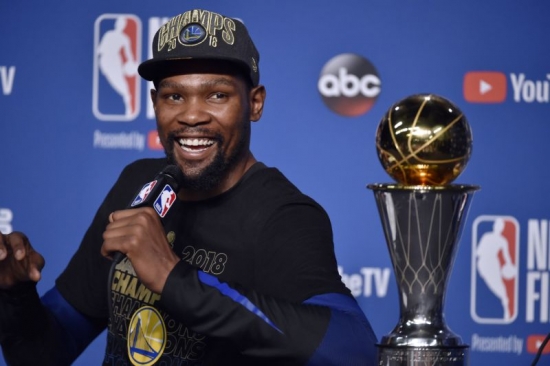

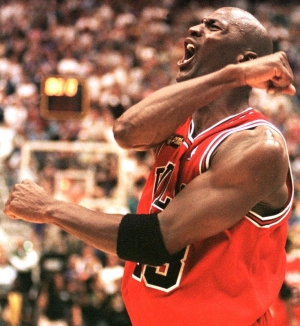
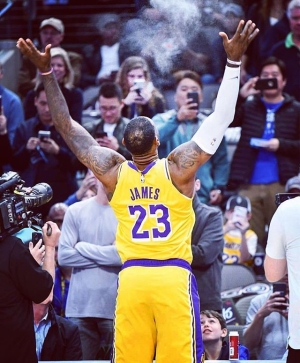
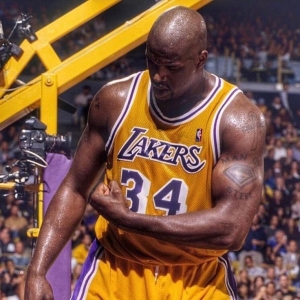
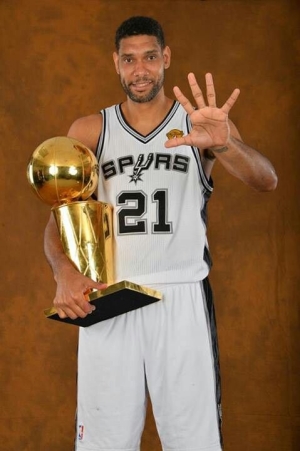
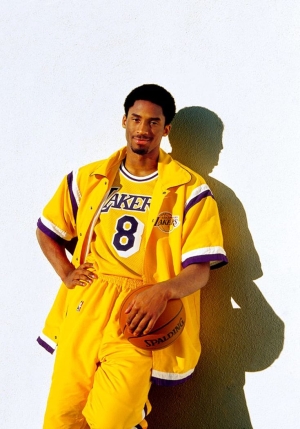
Comments powered by CComment